We all contribute to behaviours and actions which impact the planet, and these days simply passing the buck onto industry giants with the heaviest carbon footprints isn’t a strategy we can continue to follow.
The truth of the matter is that everyone needs to take responsibility and do their bit to protect the environment. After all, these are the roots that support the food industry and keep it thriving.
So how do we come together to serve up a more sustainable future? Here are some key conversations our community have had around sustainability, which highlight what we operate in a way to protect our planet.
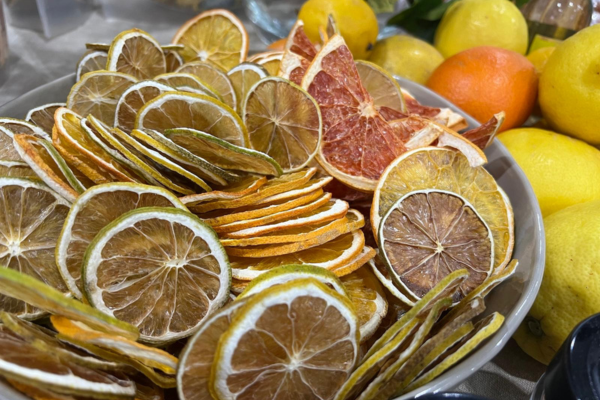
Squeezing More from Our Scraps
Throwing unused food away is something we can all be held culpable for. Often, it’s unavoidable as there’s not a lot you can do with spare ingredients; but what about unsold surplus produce? Or off-cuts left over from food prep?
Across our industry, professionals have many tips on just how easy it is to throw less in the bin, and better yet, increase revenue by doing it. Head chef, and dedicated warrior fighting the ‘War on Food Waste’, Laura Boulton, shared:
“For a dish on a menu where you’re only using part of the carrot, you’re still paying for the unused bits, like the carrot tops; over time that’s a lot of money in the bin. So, I thought, what could I do with those? And I worked on creating a dish that included them.”
The buzzword here is ‘creativity’ – it’s impressive what you can repurpose with a little imagination. In the process, food scraps can be turned into menu-worthy dishes, with financial savings to boot.
Paul Ayyash, founder of Hospo Dojo, a mentorship space for hospitality professionals to develop their skills and grow in the industry, brought some eye-watering statistics to the table:
“Did you know that some restaurants waste between four and ten percent of the food they purchase? That’s money straight into the bin. Simple changes like tracking waste, adjusting portions and smarter ordering can save thousands each year. Reduce waste by just five percent and watch your profits grow.”
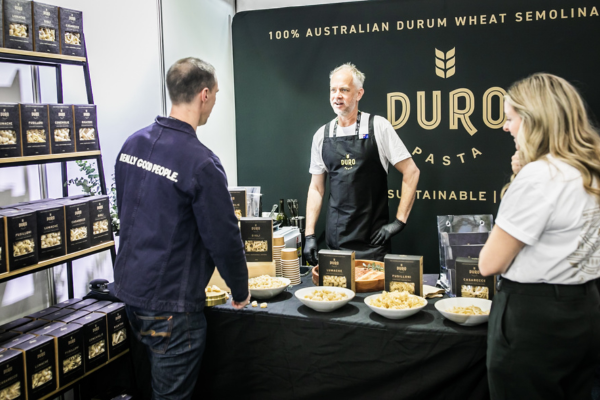
Sustainable Sourcing
Consumers are raising the bar of expectation on the topic of ‘transparency’. They increasingly want to know where the merchandise they buy actually comes from. No longer turning a blind eye, customers are starting to hold businesses accountable for the backstory of their products.
Questions such as:
do businesses really know the ‘breadcrumb trail’ of where their produce originates?
If it’s marketed as ‘organic’, can they prove that produce meets those regulations?
Is a business doing its best to support fairtrade practices and implement a strategy of sustainability?
Across our community, it is evident that we as business owners and operators, need to take the time to get to know our suppliers. These conversations can be uncomfortable, but if we don’t ask the awkward questions, things won’t improve long-term. If something doesn’t look clear or trustworthy, feel confident to challenge a supplier – if they don’t come back to you with the answers you were hoping for, buy elsewhere.
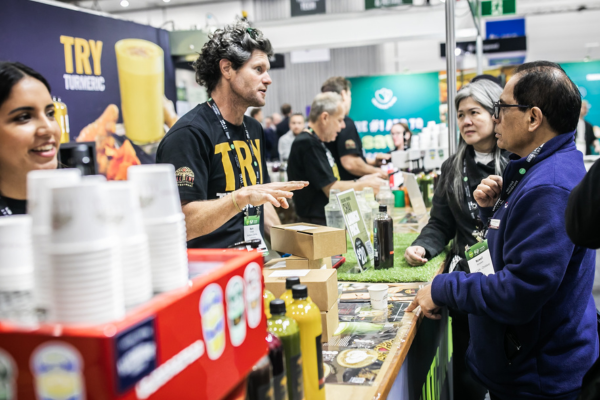
Pro Plant-Based
Despite steadily gaining in popularity, the world of plant-based cuisine is still a wonder of opportunity. The industry has come a long way in its efforts to develop this space, transforming it with dishes that would rival any animal-derived creations. With increasing demand for the production of more vegan and plant-based offerings, there’s certainly money to be made here.
The UN states that switching to a plant-based, or vegan, diet could reduce an individual person’s food-related carbon footprint by up to a third. [1]
Statistics such as these can’t be ignored, so the question of how to explore new directions in food production, using meat-alternative ingredients, is an important talking point. Consultant chef and co-founder of Table Food Consultants, Natalie Bolt, emphasises the value in keeping menus rotating with seasonal produce:
“Keeping the dining experience fresh and novel, all with ingredients that are at their very best”, will ensure that the food industry will continue to delight diners. Using produce at the peak of its seasonal crop will deliver the best colour, flavour and texture to make dishes really come alive.”
Using this as a place to start, there seems very little reason why almost all restaurant and café menus wouldn’t be able to tap into this mindset. If the food industry is to continue to flourish, more sustainable ways to serve customers must be cooked up.
The demand for intensive animal farming needs to change, and the most impactful way is cut back and find a new direction. It’s difficult to fault a dish that’s full of vibrant flavours, whether it’s derived from animals or not. Celebrating meat-free alternatives will offer a new dimension to the industry that’s barely been tapped into.
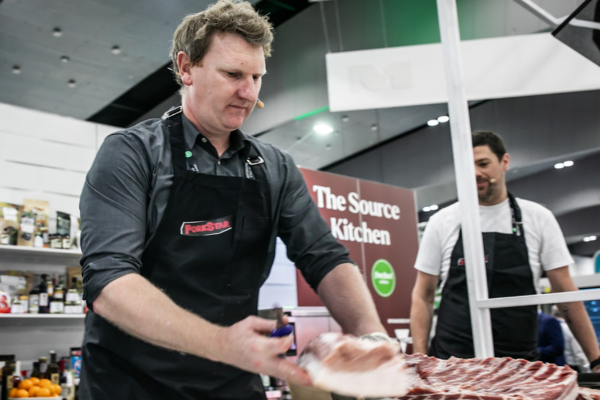
Trimming the Fat off Energy Costs
The hospitality industry is one of the biggest contributors to global energy consumption. By nature, it’s predominantly a customer-facing industry, and as business owners, we are always looking out for new ways to improve the comfort and satisfaction of our customer.
Yet quality often comes with a price tag; everything from cookers to refrigerators, air conditioning units, water filters and lighting, the list goes on and it all adds up. Keeping a close eye on energy usage, particularly wasted energy, can be a challenge in the busy day-to-day environment of a hospitality business; but small changes could have a big impact both on revenue and the preservation of the natural environment.
“Numbers do not lie”, food consultant, Paul Ayyash emphasized. Referring to high-quality, energy-efficient kitchen appliances, he revealed how “the right equipment can make your work a breeze, cutting hours into minutes.” Investing in the right appliances to work for your kitchen and “positioning them thoughtfully to minimise your energy use, is both cost-effective and environmentally friendly.”
Common, and easily solvable, issues can be identified pretty quickly. For example, many kitchens don’t create enough space between their heating and cooling equipment. Where there’s an oven or grill in constant use, the general temperature in that area will be hotter. Any cooling appliances nearby won’t work as efficiently in a hot-air environment, which may lead to all kinds of food quality and production issues.
Simply paying attention to the layout of a workspace (such as separating heating and cooling appliances) can make a huge difference to productivity. Making the right adjustments are essential, not only cutting expenses, but also using less energy. ‘Every
little helps’, and it’s worth taking note that if the whole industry monitored their energy usage more closely, the positive impact would be dramatic.
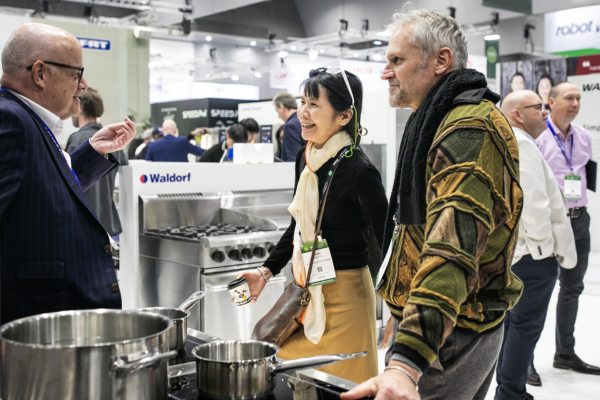
Championing Community
The natural world is in crisis, and much of the problem hinges on the issue that only a portion of the population are taking active steps to make a change – trying to protect the environment and repair some of the damage already done. Social responsibility is about working together as a community, to recognise the impact of our actions on the environment around us and do something about it.
There is already an abundance of industry professionals who understand the value in using ‘community’ as a key feature within their business. Too Good To Go have done just that. Originating in Denmark, the company’s founders wanted to connect consumers with local food businesses, who wanted a solution for their surplus produce that couldn’t be sold – perfectly good food, going into the bin.
The Too Good To Go app was born and the process is simple:
• Download the app (either as a business owner or a consumer).
• Consumers can run a search for businesses in the area to purchase a “surprise bag” of surplus unsold products at a discounted price.
• A collection time is agreed (usually at the end of the day, just before closing).
• All payments and arrangements are made via the app.
Since starting the concept back in 2015, Too Good To Go have registered over 100 million users around the world. They have saved over 350 million meals from going to waste – these are incredible numbers. It proves that community collaboration can be the recipe to business success, but also that bringing people together can have a fundamental impact on preserving the environment.
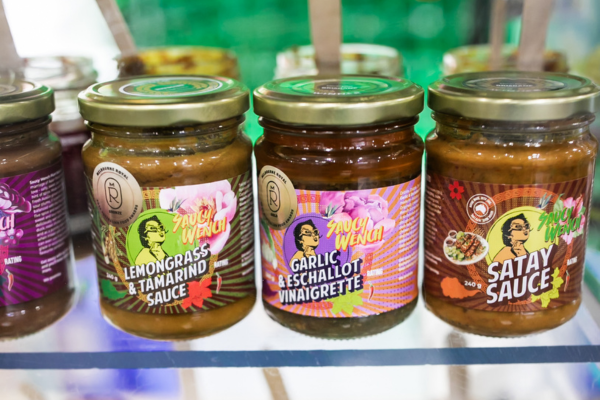
Packaging & Recycling
Industry leading brand Biopak, have long been ambassadors in the quest for single-use packaging to be manufactured from compostable materials. But the information and legislation in the public domain is often unclear and confusing. Consumers are regularly fooled into thinking they are buying products with a promise to be good for the environment, when in reality it’s no better than standard plastic.
Biopak clear up this marketing minefield with the revelation that:
“Any material will biodegrade if you give it enough time – even fossil fuel plastic can be considered biodegradable (it takes around 500 years to break down)”.
Recycling strategies are also a hot topic across our community. ‘Take back’ schemes are becoming an integral part of a packaging manufacturer’s business model, creating a ‘closed loop formula’ for reusing and recycling the packaging they produce. When choosing a packaging supplier, business owners are encouraged feel confident to ask what strategies a company has in place; requirements like this are increasingly becoming ingrained in the negotiation landscape.
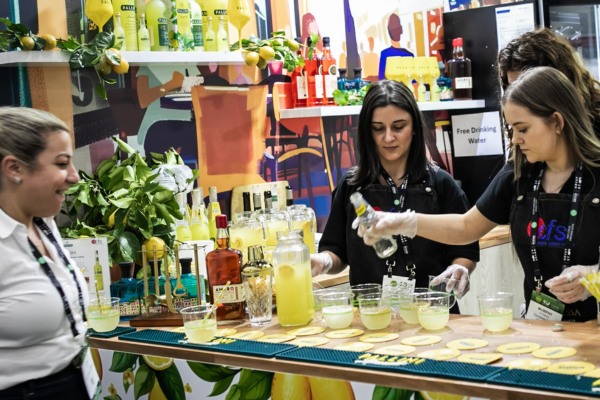
Are we at last orders?
The message of sustainability is a clear one – we need to transform the way we source and eat our food.
Attitudes are changing, but many cynics would ask, “Is it enough?” That’s something few of us can answer at this stage, but in the meantime, it’s inspiring to see what so many industry professionals are doing to dish out some much-needed change.
Aka The Fish Girl, chef Umar Nguyen put it perfectly “Food sustains us, so we need to sustain our food” – plain and simple, those are the bare-bones of it.
Join us for more conversations about key industry trends at Fine Food Australia 2025, taking place 8-11 September at the ICC Sydney. Subscribe to stay up to date.

